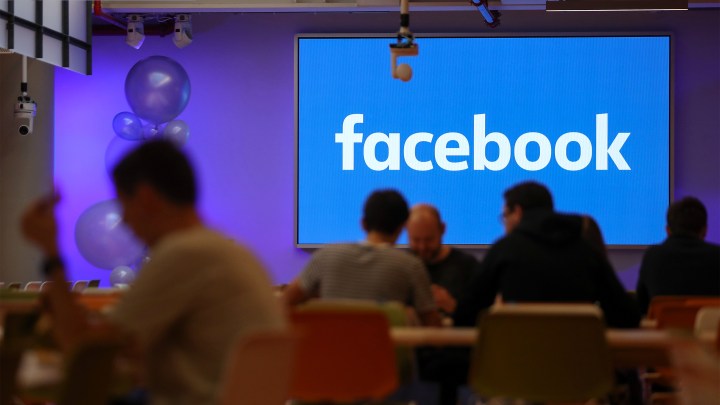
Here’s what civil rights leaders want from Facebook

Facebook is facing criticism from civil rights organizations and advertisers over its handling of hate speech and discriminatory posts.
Independent auditors hired by Facebook wrote that “the prioritization of free expression over all other values, such as equality and non-discrimination, is deeply troubling to the auditors.”
Facebook has said it would create a role for a senior vice president of civil rights leadership, ban fearmongering ads and prohibit disinformation.
Rashad Robinson, president of the civil rights organization Color of Change, met with Facebook leadership this week. He told Marketplace’s Sabri Ben-Achour, “it shouldn’t be my nonprofit that has to be monitoring and focusing its energy on a corporation that makes $70 billion a year. They need tools and systems that actually deal with this.”
The following is an edited transcript of their full conversation.
Sabri Ben-Achour: Facebook says, “We catch 89% of hate speech before it’s even reported by users.” What would you like Facebook to respond with and step up with?
Rashad Robinson: Well, I’m sometimes confounded by that statement from Facebook, because they oftentimes can back it up with the sort of transparent information. They are talking about the effectiveness of their AI tools. And we actually don’t have a whole lot to go on in terms of really understanding how effective their AI tools are. They are talking about how much those tools actually catch and how effective they are. And for folks that are monitoring some of this content, they are consistently finding those things over and over again.
But, you know, this does get us to a broader question about what should the standards be in terms of content that is dangerous, that incites violence that, you know, is related to white nationalist organizations being allowed to run rampant on the platform? And I think time and time again, we have to get to a place where we are understanding what these numbers are that they’re actually throwing out. Are they actually accurate? And then what is slipping through? Because, far too often, too many of us are experiencing, day in and day out, negative sort of experiences that relate to this content happening on the platform that makes it hard to believe 89%.
Ben-Achour: More than 1,000 brands have signed on to the Stop Hate for Profit campaign to pull advertising from Facebook. You’ve described Facebook’s response as kind of underwhelming. How effective do you think that boycott can be in spurring change?
Robinson: From everything that we’re hearing, Facebook is scrambling to try to figure out how to deal with this platform. The corporations that have left are telling us stories of frantic messages and phone calls from Facebook leadership. Way more contact than they’re used to, talking points after talking points coming from the company. At the very sort of final hours of the civil rights audit, Facebook added in a vice president for civil rights position that would sort of be senior level and have some support and infrastructure around it. I’ve had direct conversations with Facebook leadership where they talked about wanting to fast-track the hire of this position. So there are places where we can see Facebook working to respond to some of these demands.
I think, at the end of the day, we need Facebook to really focus on the incentive structure — how decisions are made about the content that stays up, who gets to make those decisions — so, long-term, we are not playing whack-a-mole with things that show up, but we have an understanding of the sort of infrastructure that will take things down. Because it shouldn’t be my nonprofit that has to be monitoring and focusing its energy on a corporation that makes $70 billion a year. They need tools and systems that actually deal with this.
There’s a lot happening in the world. Through it all, Marketplace is here for you.
You rely on Marketplace to break down the world’s events and tell you how it affects you in a fact-based, approachable way. We rely on your financial support to keep making that possible.
Your donation today powers the independent journalism that you rely on. For just $5/month, you can help sustain Marketplace so we can keep reporting on the things that matter to you.

















